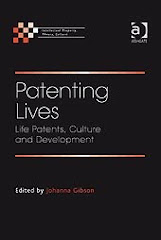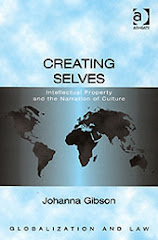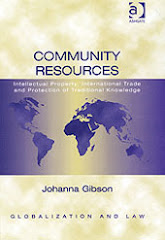 Genetic modification is not infrequently referred to as the future for food security and agricultural sustainability in developing countries. This alone is perhaps a controversial statement and many would take issue - for instance, questions of environmental security and loss of agricultural biodiversity are just some of the major questions raised.
Genetic modification is not infrequently referred to as the future for food security and agricultural sustainability in developing countries. This alone is perhaps a controversial statement and many would take issue - for instance, questions of environmental security and loss of agricultural biodiversity are just some of the major questions raised.But rather crucially, apart from debates over the nature of the technology, there must be access to that technology, not only for its immediate application but also for its ongoing development and improvement. This is a major issue raised in a recent editorial in Scientific American. Agritech companies like Monsanto and Syngenta are regularly requiring those purchasing their seed to contract out of any research or experimental use exemption that might be provided in patent law and other areas of intellectual property law. Such an exemption (often referred to as the experimental-use defence) allows for research on a patented invention in order to continue to the cycle of innovation. In other words, research conducted upon a patented invention is exempted from infringement. Indeed, this is perhaps one of the fundamental and historical premises of patent law - that is, to disclose an invention in order to acquire a monopoly. It may be argued by some that this is a legitimate exploitation of the monopoly, however such contractual restrictions may persist well beyond the life of a patent, thus compromising the supposed calculation of time needed to balance the costs of research and development and the public benefit of access to innovation. Thus, if such an agreement can override exceptions for research and become a genuine and explicit obstacle to independent research, then the notion of "user rights" sometimes applied to exceptions in patent law and other areas of intellectual property becomes somewhat problematic, if not specious. But what of the rights of purchasers of seed?
Thus, it is not an issue with patent law per se, but an issue of contract law. If the exception is not to be compromised, the relevant legislation must preclude a contractual condition having effect. But this is an issue that is not necessarily addressed in the applicable legislation, not only in the US but also in the UK and elsewhere in Europe. Similarly, many developing countries have introduced patent regimes that neglect this protection. Nevertheless, in Europe the rights of the user with respect to research conducted upon seeds may indeed be less ambiguous. For instance, in relation to plant variety rights, Switzerland has implemented recently a separate defence to prevent the practice of contracting out of the research exception (Article 8), restricted of course to plant variety aspects. Many have recommended that this sort of protection should be harmonised throughout Europe (and indeed internationally).
According to Scientific American, the agreements deployed by Monsanto and others "have explicitly forbidden the use of the seeds for any independent research. Under the threat of litigation, scientists cannot test a seed to explore the different conditions under which it thrives or fails ... And perhaps most important, they cannot examine whether the genetically modified crops lead to unintended environmental side effects." As the article explains, research is still published, but only that research approved by the company itself, completely disabling the intellectual freedom of scientific research and perhaps also the objectivity upon which scientific knowledge bases its import.



No comments:
Post a Comment